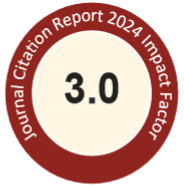Abstract
Chemotherapies remain far from ideal due to drug resistance; therefore, novel chemotherapeutic agents with higher effectiveness are crucial. The extracts of four Phyllanthus species, namely Phyllanthus niruri, Phyllanthus urinaria, Phyllanthus watsonii, and Phyllanthus amarus, were shown to induce apoptosis and inhibit metastasis of breast carcinoma cells (MCF-7). The main objective of this study was to determine the pathways utilized by these four Phyllanthus species to exert anti-metastatic activities. A cancer 10-pathway reporter was used to investigate the pathways affected by the four Phyllanthus species. Results indicated that these Phyllanthus species suppressed breast carcinoma metastasis and proliferation by suppressing matrix metalloprotein 2 and 9 expression via inhibition of the extracellular signal-related kinase (ERK) pathway. Additionally, inhibition of hypoxia-inducible factor 1-α in the hypoxia pathway caused reduced vascular endothelial growth factor and inducible nitric oxide synthase expression, resulting in anti-angiogenic effects and eventually anti-metastasis. Two-dimensional gel electrophoresis identified numerous proteins suppressed by these Phyllanthus species, including invasion proteins, anti-apoptotic protein, protein-synthesis proteins, angiogenic and mobility proteins, and various glycolytic enzymes. Our results indicated that ERK and hypoxia pathways are the most likely targets of the four Phyllanthus species for the inhibition of MCF-7 metastasis. © 2016
ScienceDirect Link
Recommended Citation
Lee, S.H.; Jaganath, I.B.; Atiya, N.; Manikam, R.; and Sekaran, S.D.
(2016)
"Suppression of ERK1/2 and hypoxia pathways by four Phyllanthus species inhibits metastasis of human breast cancer cells,"
Journal of Food and Drug Analysis: Vol. 24
:
Iss.
4
, Article 9.
Available at: https://doi.org/10.1016/j.jfda.2016.03.010
Creative Commons License

This work is licensed under a Creative Commons Attribution-Noncommercial-No Derivative Works 4.0 License.
Fulltext URL
https://www.sciencedirect.com/science/article/pii/S1021949816300527/pdfft?md5=47b9ea4eac094a71e6bdddb23999abc6&pid=1-s2.0-S1021949816300527-main.pdf
Included in
Food Science Commons, Medicinal Chemistry and Pharmaceutics Commons, Pharmacology Commons, Toxicology Commons


Abstract Image